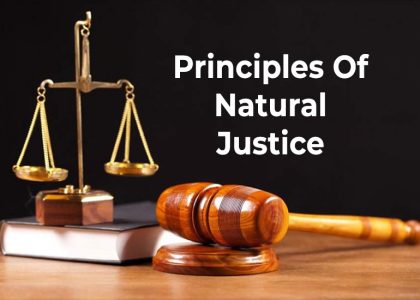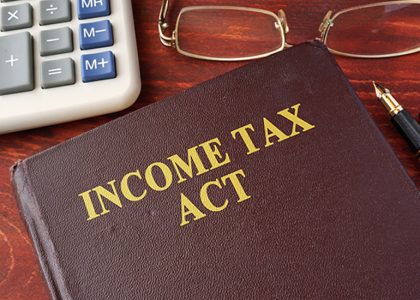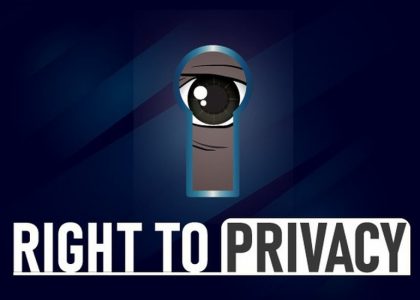INTRODUCTION
Tax Is Levied By The Government In Order To Get Money In The Exchequer, Which Can Be Used In Furtherance Of The Social Benefit Provided By The Government. An Elected Government Has The Responsibility And Duty To Serve The Public At Large. In Furtherance Of Serving The Public, The Government Undertakes Many Projects Which Range From Infrastructural Development To Building Of Public Toilets, To Make Roads, To Border Security, To Buying Arms To Tackle Terrorism Or Naxalism, To Making Rockets Etc. These Heavy Investments And Expenditures Are Made From The Exchequer And Any Money On Which Tax Is Not Paid Remains Unavailable In The Exchequer And Therefore, Becomes Black Money And This Black Money Is A Leakage Which Needs To Be Fixed.
Search And Seizure Plays An Important Role In The Hands Of The Government To Tackle The Menace Of Black Money. The Proliferation Of Black Money Has Always Been A Grave Issue Which Needed To Be Addressed On An Immediate Basis. Now, The Question Arises Is, What Is Black Money? Black Money Is All Those Unaccounted Money On Which The Assessee Has Not Paid Income Tax. Black Money Is An Inclusive Term And Does Not Restrict Itself To Receiving Illegal Commissions, Money From Human Trafficking, Ransom, Bribe, And Any Other Monies Occupied By Indulging In A Felony.
The Income Tax Department Is Restricted By The Provisions Of The Income Tax Act. Further, With Such Restrictions, It Was Very Difficult To Curb The Menace And Proliferation Of Black Money. So, In This Respect, The Income Tax Act, 1961, Provides For The Action Of Search And Seizure Under Sec. 132.
Search And Seizure Provisions Under The Income Tax Act Are One Of The Biggest Weapons In The Arsenal Of The Revenue Department. But, This Is Not The Only Tool. The Government Very Tactfully Devised Another Tool Which Is Known As Survey. Survey Is Defined Under Sec. 133A Of The Income Tax Act.
Let Us Analyse The Scheme Of Search And Seizure And The Proceeding There Onto. The Author Here Will Be Discussing The Relationship Between Section 132 With Section 153A And 153C Of The Act.
SEARCH AND SEIZURE AS STIPULATED UNDER SEC 132.
The Income Tax Act Provides For Search And Seizure Under Sec. 132 Of The Act. It Provides That The Revenue Authority Must In Consequence Of Information In Possession Shall Have “Reason To Believe” That Any Person Will Willfully Omit Or Fail To Produce The Books Or Other Documents Which Were Required By Summons Or Notice, Or Person Is In Possession Of Assets Which He Has Or Would Not Disclose Under The Act.
The Powers Of Search And Seizure Under Sec. 132 Of The Income-Tax Act, 1961 Are Very Wide In Scope. However, Several Safeguards Have Been Imposed Under The Law To Avoid Any Abuse Of Power. Reason To Believe Consequent Upon The Receipt Of Information In His Possession Is A Sine Qua Non For The Director-General Or The Director Or The Chief Commissioner Or The Commissioner, As The Case May Be, To Authorise Any Joint Director, Joint Commissioner, Assistant Director Or Deputy Director, Assistant Commissioner Or Deputy Commissioner Or Assessing Officer, As The Case May Be, To Do The Acts Specified In Clauses (I) To (V) Of Section 132(1)(B).
A Conjoint Reading Of Sec 132 And Sec 153A Makes It Abundantly Clear That A Search Action Under Sec. 132 Is A Precondition For Sec. 153A To Come Into Play. If There Is No Search Action Taken Place Then The Invocation Of Sec. 153A Is Ruled Out As Sec. 153A Clearly States That “In The Case Of A Person Where A Search Is Initiated Under Section 132 Or Books Of Account, Other Documents Or Any Assets Are Requisitioned Under Section 132A”. From This, It Follows That If Documents Are Impounded U/S. 133A Then Provisions Of Section 153A Or 153C Cannot Be Invoked.
It Is Germane Here To Mention That Survey Under Section 133A Of The Income Tax Act, Made By The Department Is Different From The Search And Seizure Operation. Often, The Jurisdictional Assessing Officer Makes The Survey, Or It Is Made By The Investigation Wing. In My Considered Opinion, The Action Under Section 133A Cannot Give Any Rise To Proceeding Under Sec. 153A Or 153C. Meaning Thereby, A Proceeding That Can Be Initiated After Completion Of A Survey Is A Proceeding As Defined Under Sec. 147/148 Of The Income Tax Act. So, In A Strict Sense, A Proceeding Under Sec. 133A Cannot Culminate Into A Proceeding Under Section 153A Or 153C. Therefore, Any Proceedings Initiated Under 153C Or 153A Originating From Sec.133A Is Void And Is Liable To Be Quashed.
Having Said This, Another Question Which Arises Relating To Sec 133A Is Whether A Statement Recorded U/S 133A Can Be Taken As A Base For Recording The Satisfaction For Proceedings U/S 153C.
In My Humble Opinion, A Disclosure Made By An Assessee During A Survey Proceeding U/S 133A Cannot Be Construed As Incriminating Material. It Is Indispensable To State That Sec 132(4) States That The Authorized Officer May, During The Course Of Search And Seizure, “Examine On Oath Any Person Who Is Found To Be In Possession Or Control Of Any Books Of Account, Documents, Monies, Bullion, Jewellery…” And That Any Statement Made During Such Examination May Be Used Thereafter In Evidence In Any Proceeding Under The Act. Sec 132(4) Provides For Copious Power To Be Used As Evidence. Whereas, Sec. 133A Does Not Talk Of The Recording Of Any Statement On Oath. Therefore, There Is A Stark Difference In The Nature Of The Statement Recorded Under Section 132(4) And That Recorded Under Section 133A. In My Opinion, A Mere Statement Which Is Not Even Under Oath Cannot Be Used To Initiate A Proceeding Under Sec. 153C Of The Act.
PROCEEDING AFTER SEARCH AND SEIZURE TOOK PLACE.
Once Search And Seizure I.E. Raid Is Conducted On An Assessee Then There Arises Two Conditions:-
- Incriminating materials may be found at the place of the assessee on whom the raid action took place or;
- Incriminating material so seized pertains to or belongs to the assessee other than one on whom the search proceedings took place.
Now, In Condition Where Incriminating Evidences Are Found At The Place Of The Assessee On Whom The Search Proceedings Took Place, The Procedure Laid Down Under Sec. 153A Will Be Applicable. On The Other Hand, The Other Assessee On Whom The Search Action Did Not Take Place But Some Incriminating Material Were Found Which Belongs To Or Pertains To Him, On Him Section 153C Will Be Applicable.
The Scheme Of Sec. 153A And Sec. 153C Is Such That Under Sec. 153A Assessment Of 6 (Six) Preceding Years Of The Assessee On Whom Search And Seizure Is Conducted Is Carried On. Whereas, Under Sec. 153C During Search Any Incriminating Material Found Which Belonged To Or Pertains To Some Other Person Then Proceeding Which Is Similar To Sec. 153A Is Initiated On That Other Person Under Sec. 153C.
Income Tax Act Provides For A Very Clear Difference And Implication Of Both The Sections. Sec. 153C Is Very Peculiar In A Sense That There Is A Transfer Of Incriminating Material From One Assessing Officer To Another Assessing Officer (Jurisdictional). This Transfer Of Incriminating Material And Assessment And Re-Assessment Thereafter Is Done With Prior Satisfaction Of Both The Assessing Officers In Their Personal Capacity. Sec. 153C Is A Weapon Which Gives Immense Power To The Department To Bring Within Their Ambit Even Those Individuals On Whom Search Has Not Been Conducted. The Only Rider Is That The Evidence (Document/Assets) Found Shall Belong/Pertain To Them.
Sec. 153C Of The Act Provides For Two Different Assessing Officers. First Assessing Officer Is The One Who Is Assessing Officer In Respect Of The Person Who Is Being Searched And The Second Assessing Officer (Jurisdictional Assessing Officer) Is In Respect Of That Other Person Against Whom Incriminating Evidences Were Found But On Him No Search Action Took Place.
There Is No Separate Requirement Of Recording Of Satisfaction For Initiating Proceedings U/S 153A. The Reason Behind It Is That The Satisfaction Is Already Recorded At The Time Of Search U/S 132. However, Under Sec. 153C Satisfaction Is Must. One Satisfaction Is To Be Recorded By The Assessing Officer Of The “Searched Person” That The Books Of Accounts/Documents Belongs To/Relates To “Another Person” And The Second Satisfaction Is To Be Recorded By The Assessing Officer Of “Other Person” That The Books Of Accounts/Assets Have Bearing On The Total Income Of Other Person.











